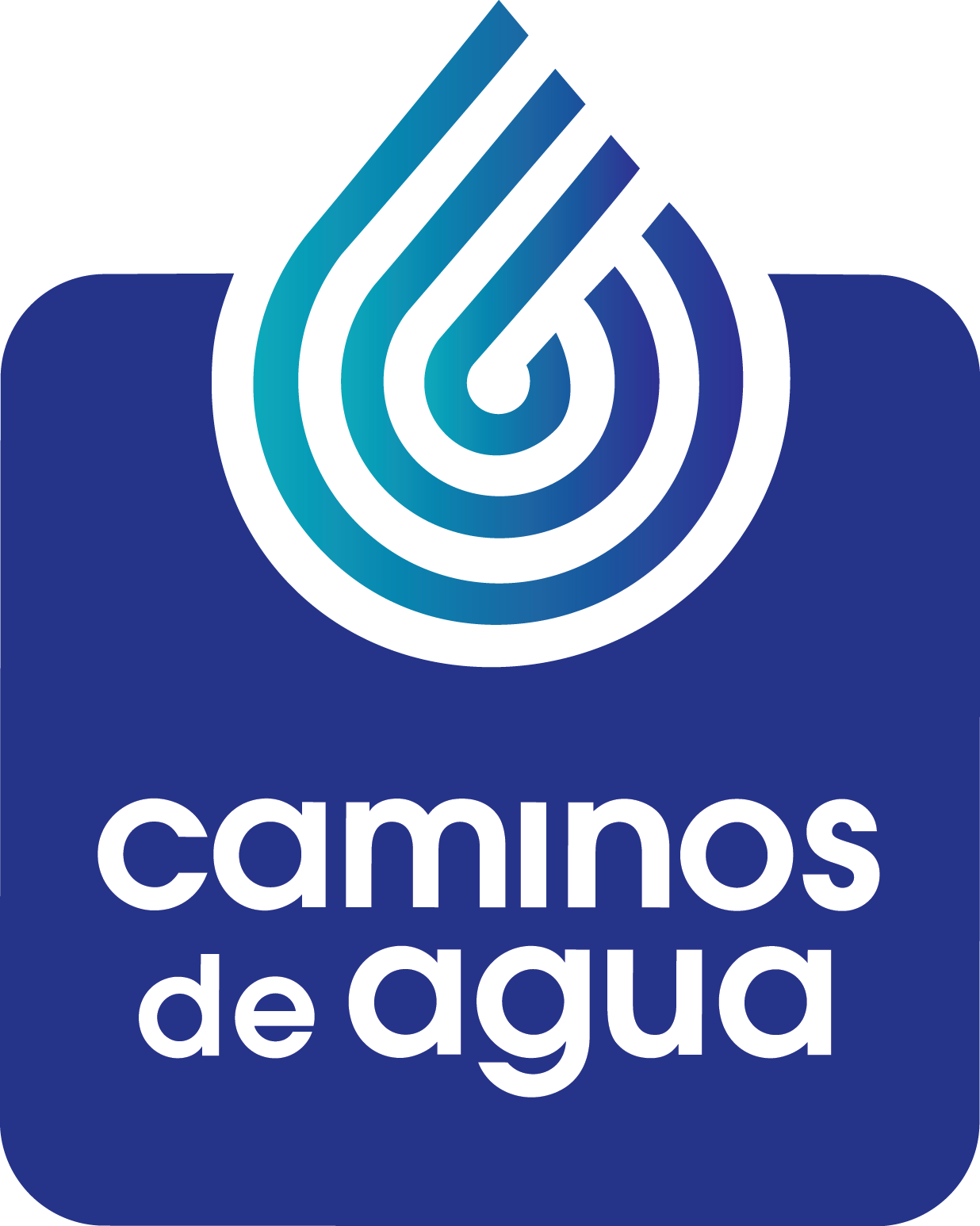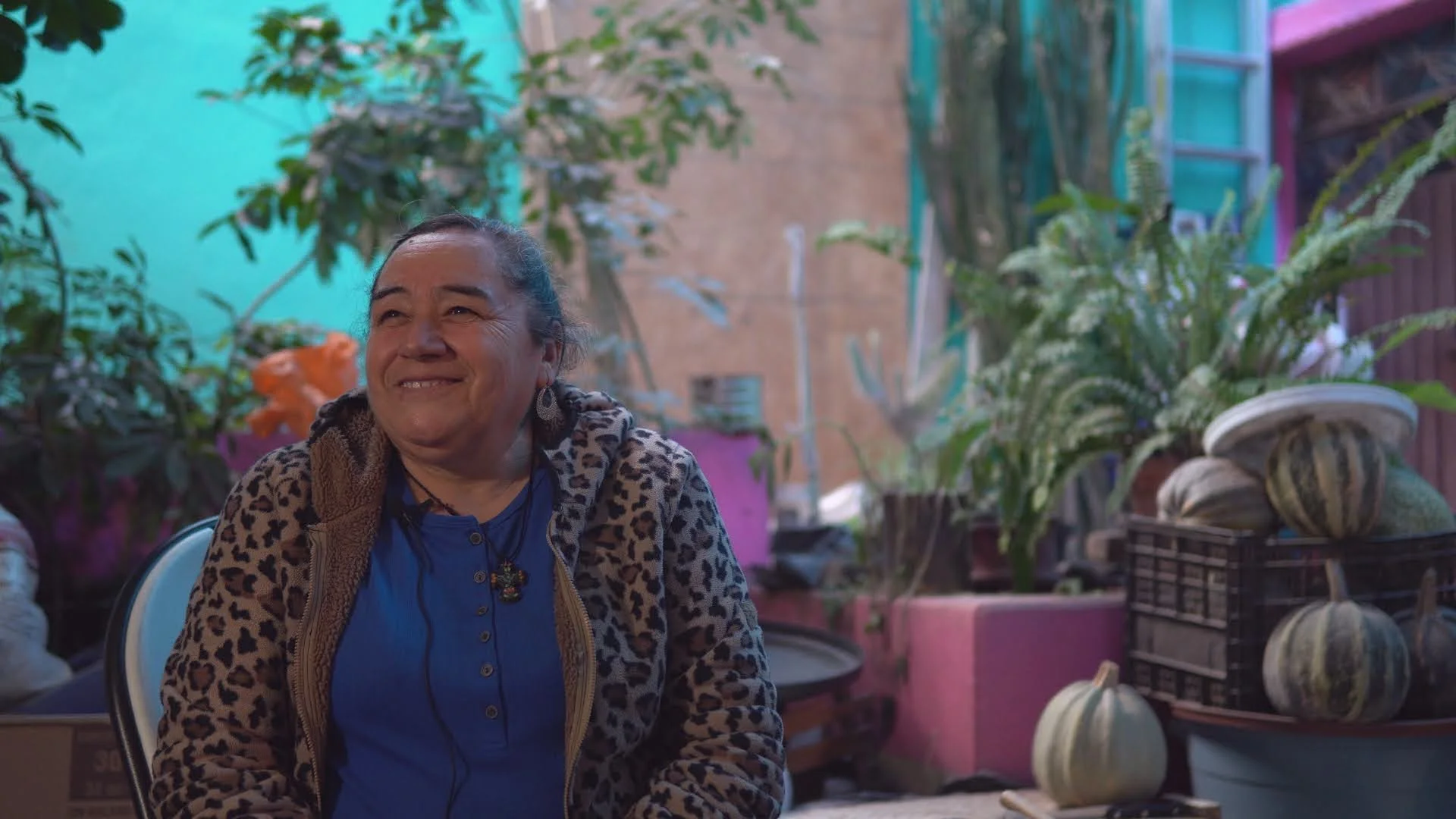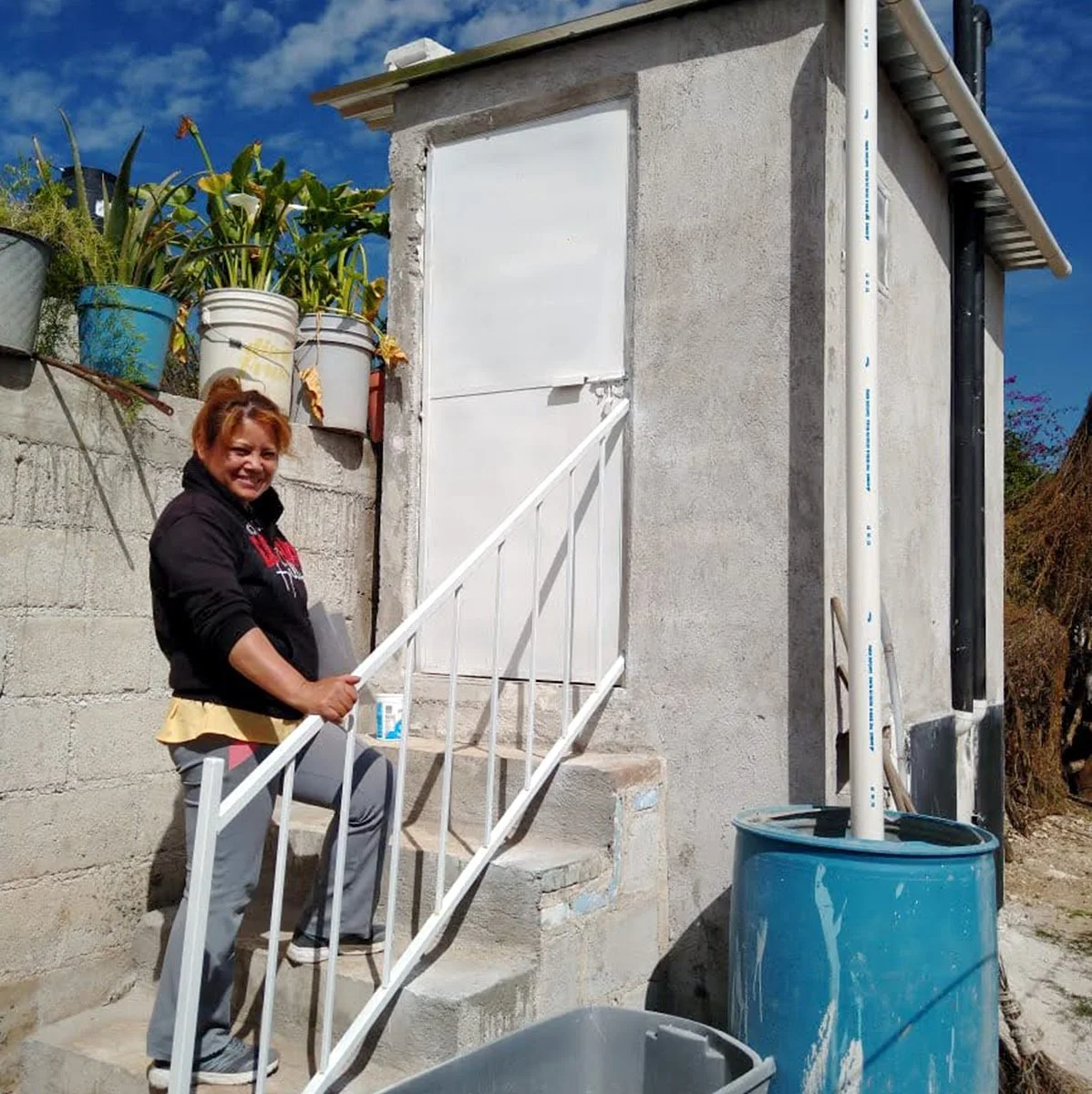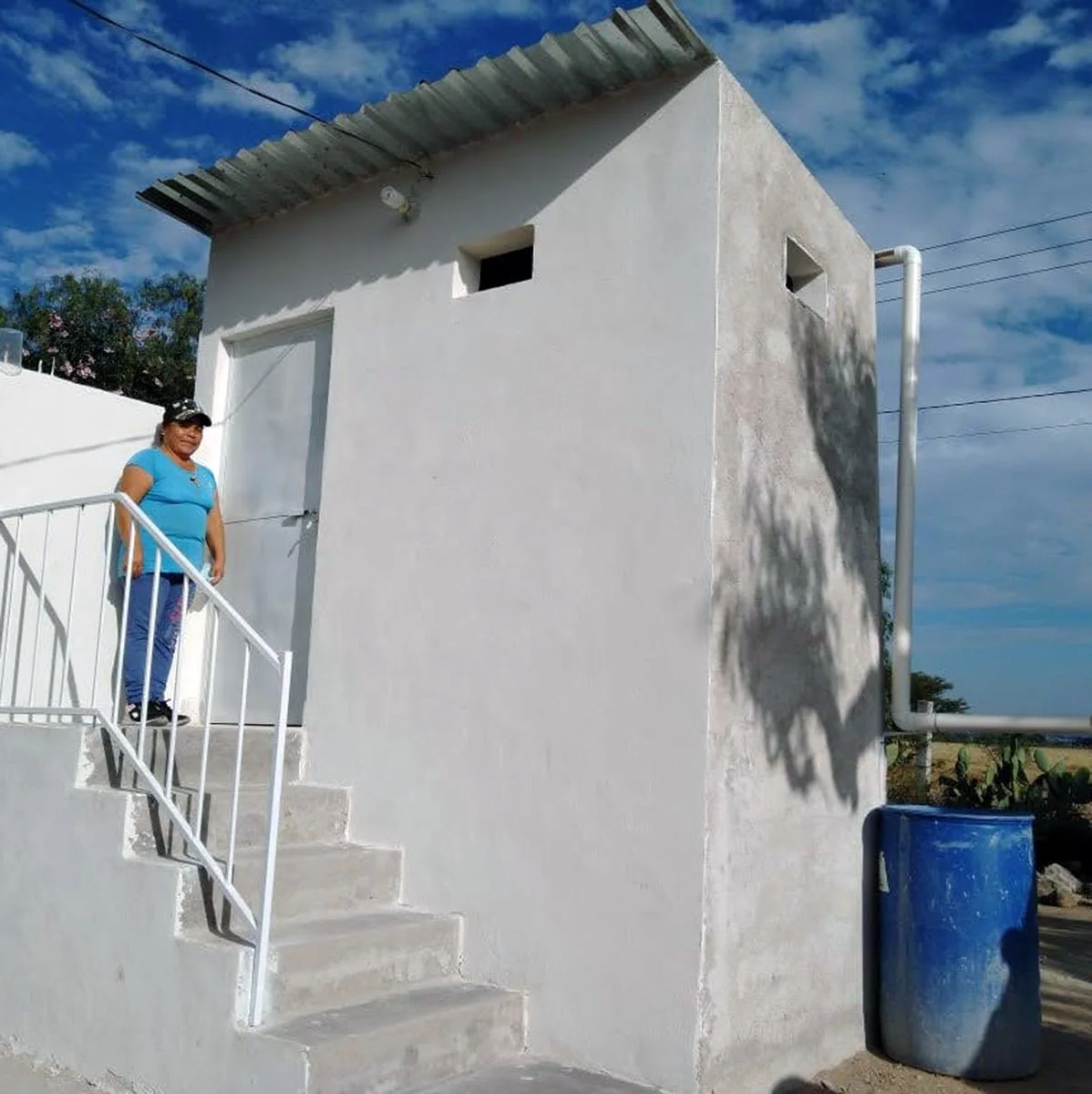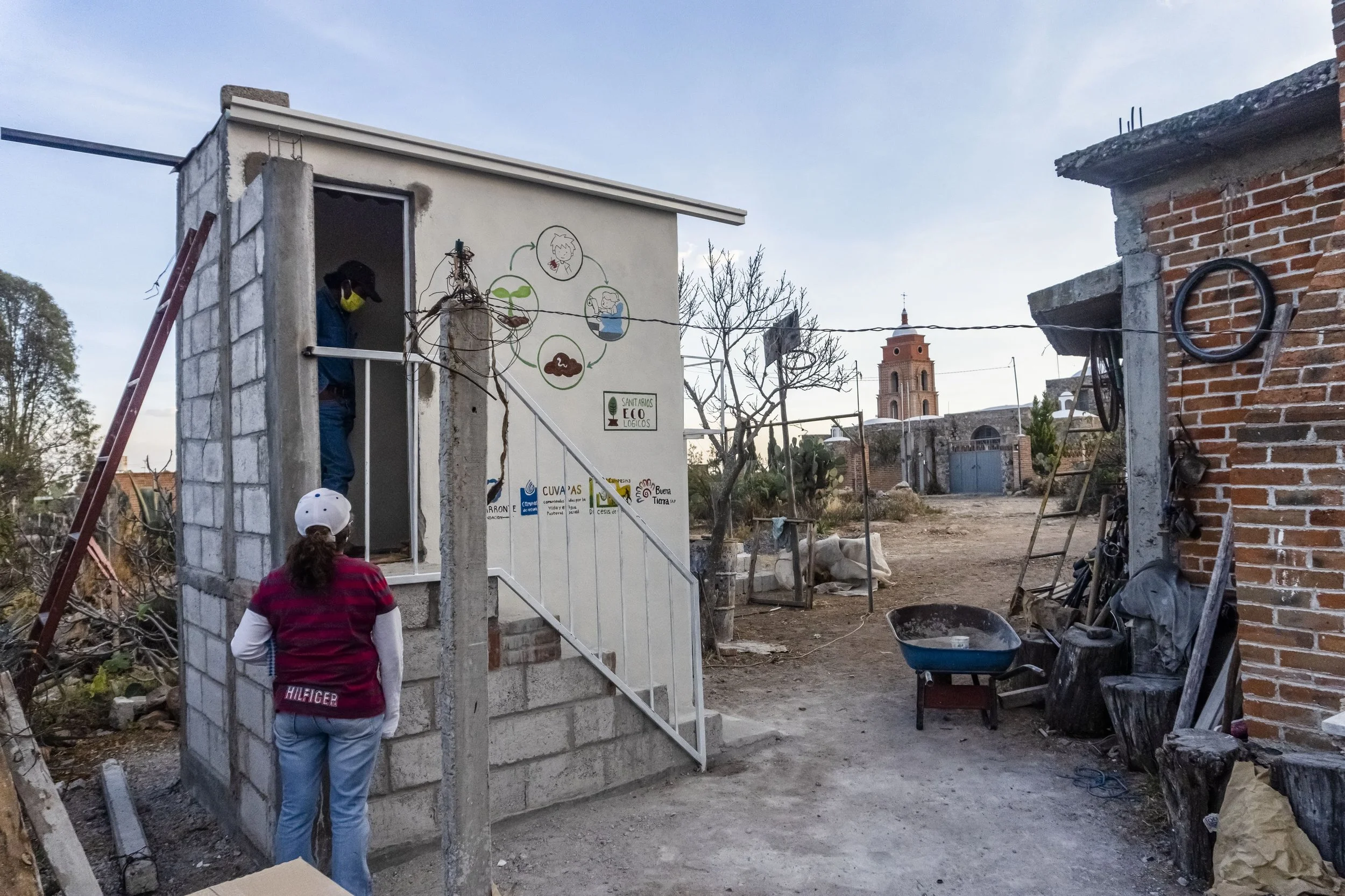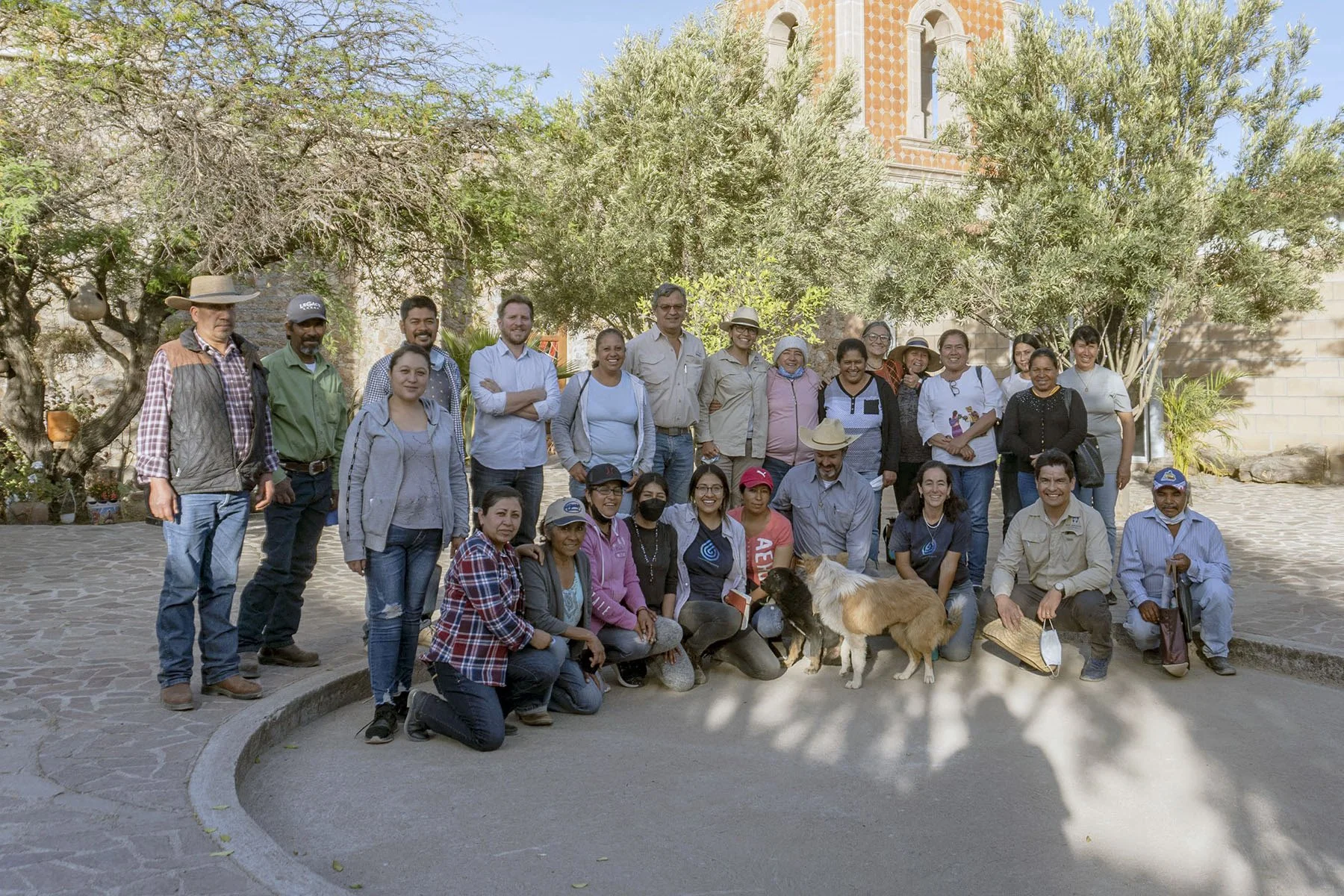The Simple Act of Flushing a Toilet isn’t Possible for Many Living with Water Scarcity
It’s hard to fathom that there are people today debating whether or not to flush their toilets because it could mean not having enough water for other critical uses throughout the day. Even more difficult to comprehend is not having a toilet in your home in the first place and having to regularly go to the bathroom in the open air. Unfortunately, this is the harsh reality for many of our neighbors in our region – the Upper Río Laja Watershed – where more than 700,000 live and depend on scarce and depleting groundwater for their life-sustaining needs.
Proper sanitation is often overlooked as the major health and safety concern that it is in places like our region where water scarcity is an extremely devastating reality. However, a simple solution existes: composting toilets. Properly built composting toilets are hygienic and also completely dry – meaning they use no water at all – allowing families in water scarce regions much more liberty in how they use their limited water supplies, without sacrificing their basic sanitation needs.
While composting toilets are easy to use and create a safe and dignified environment for bathroom use, Dylan Terrell, Founder and Executive Director of Caminos de Agua, was initially hard to convince:
“I’ve seen over and over again how composting toilets fail. Even though they are extremely hygienic when properly installed, at the end of the day, people don’t want to deal with human waste. The key, as with most technologies, has actually nothing to do with the technology itself… It’s all about social acceptance. I’ll be the first to admit that I was hesitant, even negative… Lucha showed how wrong I was.”
Fed up with having to literally flush their precious water down the toilet or not having a toilet in the first place, Luz “Lucha” Villafuerte came to Caminos de Agua in 2020 to convince us of our shortsightedness. As a founder of CUVAPAS (United Communities for Life and Water for its acronym in Spanish) – a key grassroots organization that represents dozens of communities living with water scarcity conditions throughout the region as well as one of Caminos’ most important and trusted collaborators – Lucha brought the critical need for these “dry” toilets to the forefront.
Thanks to Lucha’s insistence, composting toilets became a critical new element of our collaborative Agua y Salud (“Water & Health”) initiative – a massive 3-year project, largely funded by the Río Arronte foundation, that brings together more than a dozen collaborators to implement educational programing and water and sanitation solutions across more than 50 rural communities. Given that this is a new technology for our network, we also partnered with the local organizational experts in this field, GAIA, A.C., to lead the educational components and to make sure these solutions are used and transferred appropriately to community families.
Together, we have built 30 composting toilets in our first pilot phase, changing the reality for hundreds of people by helping them address their sanitation needs with dignity in the face of extreme water scarcity.
In the words of Gabriela Govea, from the community of San Cayetano:
“I live on the other side of the community, and we not only lacked access to water but we didn’t have a toilet at all. I have three daughters, and we would have to go to dangerous places to do our basic needs. Now that we have [a dry toilet], I feel really fortunate. It’s such a blessing because I’m now finally able to give a dignified living situation to [my daughters]. ”
Thanks to the joint efforts of CUVAPAS, GAIA, Caminos, and so many other collaborators, composting toilets are quickly becoming a tangible solution being sustainably propagated throughout our region. As Lucha notes:
“Our approach [at CUVAPAS] is to teach people how to become technicians in their own right. Now people who were beneficiaries are teaching others how to install and maintain these toilets.”
